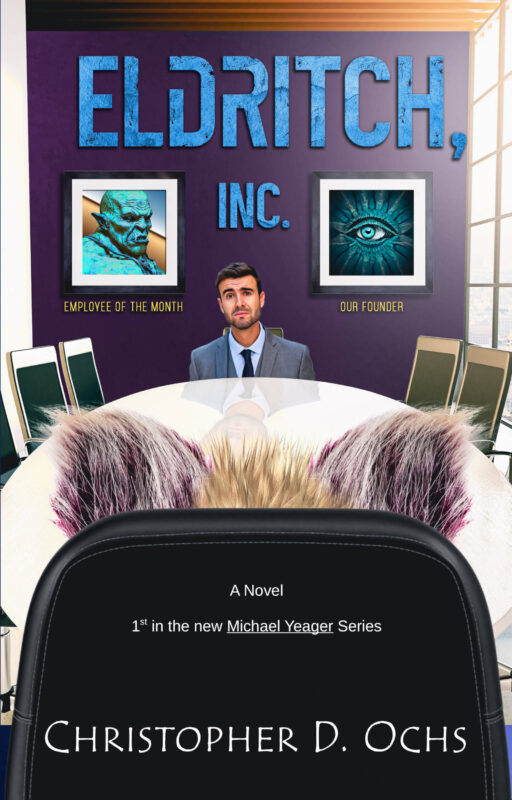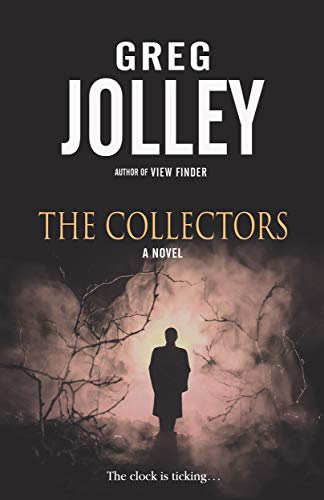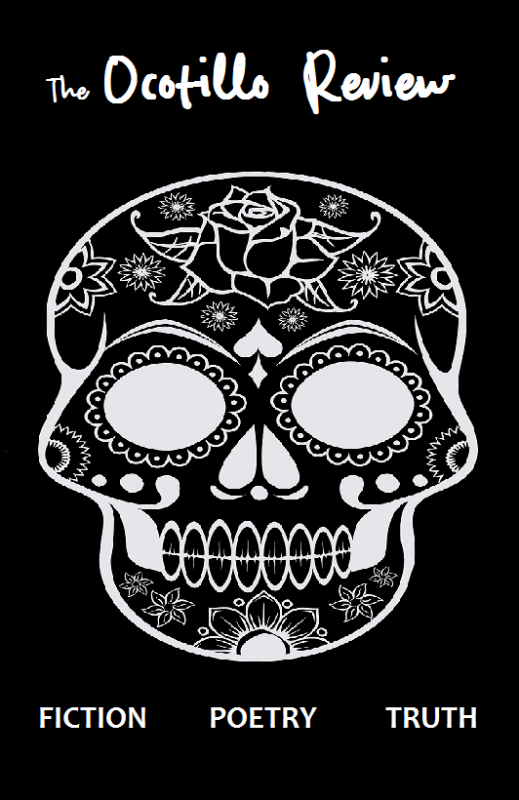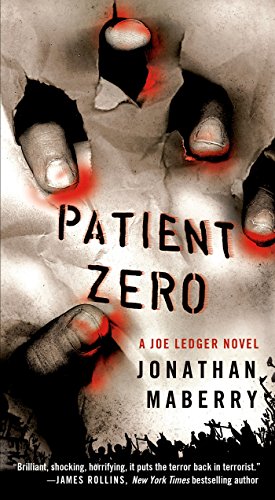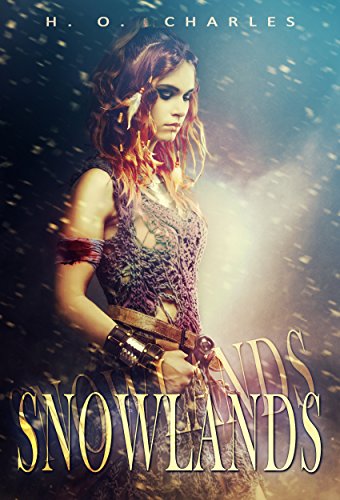Writing The Dreaded Book Blurb by Jenny Jensen
March 19, 2021 by Jenny Jensen in category On writing . . . by Jenny Jensen tagged as Blrubs, clickbait, Marketing, writing
Cartoons by John Atkinson, www.wronghands1.com
Writing The Dreaded Book Blurb
Every author faces this last crucial challenge. You’ve already spent untold hours researching, writing and editing your book. Your title hits just the right poetic note. You’ve gone several tense rounds to find the perfect cover. All that remains is the book blurb, the opening salvo in the promotional war. This is the first (and sometimes only) chance to grab a reader and compel them to buy the book. And so, like click bait, you need to lure your reader with an honest but irresistible snap shot.
It’s an art, this writing of a synopsis that isn’t a synopsis, this sell copy that isn’t an ad. And for something that isn’t a science there are strict rules: you have to be honest – no misleading the reader. No spoilers or why bother to read it – which can be tough since the spoiler is often the most exciting part of the story. Keep it at 200 words or less and don’t make it one run-on paragraph. Use the proper keywords for your genre. Reveal something about the antagonist – readers like to know if they can root for the hero. This isn’t the place to relate the entire plot but you have to provide the zeitgeist, the feel of the tale. No easy task.
A lot of the writers I work with find this daunting and ask for help, which I am happy to provide. I think it’s difficult for the writer to step far enough away from their work to pick out the enticing, salient points and present them with the tension and intrigue that make for a successful blurb. To the author, all story points are important. I get that, but as an avid reader I know what works for me in a blurb. It’s not how much is said, but how compellingly it’s said.
I start with a deconstruction approach. It’s possible to distill any story down to bare bones. In his book Hit Lit – Cracking the Code of the Twentieth Century’s Biggest Bestsellers James W. Hall provided the most distilled example I’ve ever seen. This is a beloved tale that we all know intimately: “A young girl wakes in a surreal landscape and murders the first woman she sees. She teams with three strangers and does it again.” It’s short, accurate and intriguing but would it sell the book?
I wouldn’t distill it down that far but it makes a great beginning. What if we knew something about the young girl – an orphan, a princess, a refugee? And what about the surreal landscape – gaping desert, oozing swamp, forbidding mountains? Then the three strangers – female, male, older, menacing, kindly? Is all this murdering spurred by necessity, thrills, defense, the three strangers or is it unintended manslaughter? And finally, what is the young girl up to – revenge, enlightenment, finding a way out of the surreal landscape? Flesh out those points, add some genre keywords, reference any kudos and you could turn those original 24 spartan words into a 160 – 200 word blurb that would peak curiosity and entice the shopper to buy.
If you can step away from the totality of your story and deconstruct the plot to the primary elements, then present those elements in a provocative way you can create an effective selling tool with your book blurb. BTW, that book Hall described? The Wizard of Oz.
Jenny
2 0 Read moreWriting The Dreaded Book Blurb by Jenny Jensen
January 19, 2021 by Jenny Jensen in category On writing . . . by Jenny Jensen tagged as Blrubs, clickbait, Marketing, writing, Writing the Dreaded Book BlurbFrom our Archives

Cartoons by John Atkinson, www.wronghands1.com
Writing The Dreaded Book Blurb
Every author faces this last crucial challenge. You’ve already spent untold hours researching, writing and editing your book. Your title hits just the right poetic note. You’ve gone several tense rounds to find the perfect cover. All that remains is the book blurb, the opening salvo in the promotional war. This is the first (and sometimes only) chance to grab a reader and compel them to buy the book. And so, like click bait, you need to lure your reader with an honest but irresistible snap shot.
It’s an Art
It’s an art, this writing of a synopsis that isn’t a synopsis, this sell copy that isn’t an ad. And for something that isn’t a science there are strict rules: you have to be honest – no misleading the reader. No spoilers or why bother to read it – which can be tough since the spoiler is often the most exciting part of the story. Keep it at 200 words or less and don’t make it one run-on paragraph. Use the proper keywords for your genre. Reveal something about the antagonist – readers like to know if they can root for the hero. This isn’t the place to relate the entire plot but you have to provide the zeitgeist, the feel of the tale. No easy task.
A lot of the writers I work with find this daunting and ask for help, which I am happy to provide. I think it’s difficult for the writer to step far enough away from their work to pick out the enticing, salient points and present them with the tension and intrigue that make for a successful blurb. To the author, all story points are important. I get that, but as an avid reader I know what works for me in a blurb. It’s not how much is said, but how compellingly it’s said.
Bare Bones
I start with a deconstruction approach. It’s possible to distill any story down to bare bones. In his book Hit Lit – Cracking the Code of the Twentieth Century’s Biggest Bestsellers James W. Hall provided the most distilled example I’ve ever seen. This is a beloved tale that we all know intimately: “A young girl wakes in a surreal landscape and murders the first woman she sees. She teams with three strangers and does it again.” It’s short, accurate and intriguing but would it sell the book?
I wouldn’t distill it down that far but it makes a great beginning. What if we knew something about the young girl – an orphan, a princess, a refugee? And what about the surreal landscape – gaping desert, oozing swamp, forbidding mountains? Then the three strangers – female, male, older, menacing, kindly? Is all this murdering spurred by necessity, thrills, defense, the three strangers or is it unintended manslaughter? And finally, what is the young girl up to – revenge, enlightenment, finding a way out of the surreal landscape? Flesh out those points, add some genre keywords, reference any kudos and you could turn those original 24 spartan words into a 160 – 200 word blurb that would peak curiosity and entice the shopper to buy.
Primary Elements in a Provocative Way
If you can step away from the totality of your story and deconstruct the plot to the primary elements, then present those elements in a provocative way you can create an effective selling tool with your book blurb. BTW, that book Hall described? The Wizard of Oz.
~Jenny
Writing The Dreaded Book Blurb by Jenny Jensen
February 19, 2020 by Jenny Jensen in category On writing . . . by Jenny Jensen tagged as Blrubs, clickbait, Marketing, writingFrom Our Archives

Cartoons by John Atkinson, www.wronghands1.com
Writing The Dreaded Book Blurb
Every author faces this last crucial challenge. You’ve already spent untold hours researching, writing and editing your book. Your title hits just the right poetic note. You’ve gone several tense rounds to find the perfect cover. All that remains is the book blurb, the opening salvo in the promotional war. This is the first (and sometimes only) chance to grab a reader and compel them to buy the book. And so, like click bait, you need to lure your reader with an honest but irresistible snap shot.
It’s an art, this writing of a synopsis that isn’t a synopsis, this sell copy that isn’t an ad. And for something that isn’t a science there are strict rules: you have to be honest – no misleading the reader. No spoilers or why bother to read it – which can be tough since the spoiler is often the most exciting part of the story. Keep it at 200 words or less and don’t make it one run-on paragraph. Use the proper keywords for your genre. Reveal something about the antagonist – readers like to know if they can root for the hero. This isn’t the place to relate the entire plot but you have to provide the zeitgeist, the feel of the tale. No easy task.
A lot of the writers I work with find this daunting and ask for help, which I am happy to provide. I think it’s difficult for the writer to step far enough away from their work to pick out the enticing, salient points and present them with the tension and intrigue that make for a successful blurb. To the author, all story points are important. I get that, but as an avid reader I know what works for me in a blurb. It’s not how much is said, but how compellingly it’s said.
I start with a deconstruction approach. It’s possible to distill any story down to bare bones. In his book Hit Lit – Cracking the Code of the Twentieth Century’s Biggest Bestsellers James W. Hall provided the most distilled example I’ve ever seen. This is a beloved tale that we all know intimately: “A young girl wakes in a surreal landscape and murders the first woman she sees. She teams with three strangers and does it again.” It’s short, accurate and intriguing but would it sell the book?
I wouldn’t distill it down that far but it makes a great beginning. What if we knew something about the young girl – an orphan, a princess, a refugee? And what about the surreal landscape – gaping desert, oozing swamp, forbidding mountains? Then the three strangers – female, male, older, menacing, kindly? Is all this murdering spurred by necessity, thrills, defense, the three strangers or is it unintended manslaughter? And finally, what is the young girl up to – revenge, enlightenment, finding a way out of the surreal landscape? Flesh out those points, add some genre keywords, reference any kudos and you could turn those original 24 spartan words into a 160 – 200 word blurb that would peak curiosity and entice the shopper to buy.
If you can step away from the totality of your story and deconstruct the plot to the primary elements, then present those elements in a provocative way you can create an effective selling tool with your book blurb. BTW, that book Hall described? The Wizard of Oz.
Jenny
1 0 Read more
Writing The Dreaded Book Blurb by Jenny Jensen
September 19, 2019 by Jenny Jensen in category On writing . . . by Jenny Jensen tagged as Blrubs, clickbait, Marketing, writing
A popular post from our archives.

Writing The Dreaded Book Blurb
Every author faces this last crucial challenge. You’ve already spent untold hours researching, writing and editing your book. Your title hits just the right poetic note. You’ve gone several tense rounds to find the perfect cover. All that remains is the book blurb, the opening salvo in the promotional war. This is the first (and sometimes only) chance to grab a reader and compel them to buy the book. And so, like click bait, you need to lure your reader with an honest but irresistible snap shot.
It’s an Art
It’s an art, this writing of a synopsis that isn’t a synopsis, this sell copy that isn’t an ad. And for something that isn’t a science there are strict rules: you have to be honest – no misleading the reader. No spoilers or why bother to read it – which can be tough since the spoiler is often the most exciting part of the story. Keep it at 200 words or less and don’t make it one run-on paragraph. Use the proper keywords for your genre. Reveal something about the antagonist – readers like to know if they can root for the hero. This isn’t the place to relate the entire plot but you have to provide the zeitgeist, the feel of the tale. No easy task.
A lot of the writers I work with find this daunting and ask for help, which I am happy to provide. I think it’s difficult for the writer to step far enough away from their work to pick out the enticing, salient points and present them with the tension and intrigue that make for a successful blurb. To the author, all story points are important. I get that, but as an avid reader I know what works for me in a blurb. It’s not how much is said, but how compellingly it’s said.
An Example
I start with a deconstruction approach. It’s possible to distill any story down to bare bones. In his book Hit Lit – Cracking the Code of the Twentieth Century’s Biggest Bestsellers James W. Hall provided the most distilled example I’ve ever seen. This is a beloved tale that we all know intimately: “A young girl wakes in a surreal landscape and murders the first woman she sees. She teams with three strangers and does it again.” It’s short, accurate and intriguing but would it sell the book?
I wouldn’t distill it down that far but it makes a great beginning. What if we knew something about the young girl – an orphan, a princess, a refugee? And what about the surreal landscape – gaping desert, oozing swamp, forbidding mountains? Then the three strangers – female, male, older, menacing, kindly? Is all this murdering spurred by necessity, thrills, defense, the three strangers or is it unintended manslaughter? And finally, what is the young girl up to – revenge, enlightenment, finding a way out of the surreal landscape? Flesh out those points, add some genre keywords, reference any kudos and you could turn those original 24 spartan words into a 160 – 200 word blurb that would peak curiosity and entice the shopper to buy.
If you can step away from the totality of your story and deconstruct the plot to the primary elements, then present those elements in a provocative way you can create an effective selling tool with your book blurb. BTW, that book Hall described? The Wizard of Oz.
Jenny
2 0 Read moreWriting The Dreaded Book Blurb by Jenny Jensen
November 19, 2017 by Jenny Jensen in category On writing . . . by Jenny Jensen tagged as Blrubs, clickbait, Marketing, writing
Cartoons by John Atkinson, www.wronghands1.com
Writing The Dreaded Book Blurb
Every author faces this last crucial challenge. You’ve already spent untold hours researching, writing and editing your book. Your title hits just the right poetic note. You’ve gone several tense rounds to find the perfect cover. All that remains is the book blurb, the opening salvo in the promotional war. This is the first (and sometimes only) chance to grab a reader and compel them to buy the book. And so, like click bait, you need to lure your reader with an honest but irresistible snap shot.
It’s an art, this writing of a synopsis that isn’t a synopsis, this sell copy that isn’t an ad. And for something that isn’t a science there are strict rules: you have to be honest – no misleading the reader. No spoilers or why bother to read it – which can be tough since the spoiler is often the most exciting part of the story. Keep it at 200 words or less and don’t make it one run-on paragraph. Use the proper keywords for your genre. Reveal something about the antagonist – readers like to know if they can root for the hero. This isn’t the place to relate the entire plot but you have to provide the zeitgeist, the feel of the tale. No easy task.
A lot of the writers I work with find this daunting and ask for help, which I am happy to provide. I think it’s difficult for the writer to step far enough away from their work to pick out the enticing, salient points and present them with the tension and intrigue that make for a successful blurb. To the author, all story points are important. I get that, but as an avid reader I know what works for me in a blurb. It’s not how much is said, but how compellingly it’s said.
I start with a deconstruction approach. It’s possible to distill any story down to bare bones. In his book Hit Lit – Cracking the Code of the Twentieth Century’s Biggest Bestsellers James W. Hall provided the most distilled example I’ve ever seen. This is a beloved tale that we all know intimately: “A young girl wakes in a surreal landscape and murders the first woman she sees. She teams with three strangers and does it again.” It’s short, accurate and intriguing but would it sell the book?
I wouldn’t distill it down that far but it makes a great beginning. What if we knew something about the young girl – an orphan, a princess, a refugee? And what about the surreal landscape – gaping desert, oozing swamp, forbidding mountains? Then the three strangers – female, male, older, menacing, kindly? Is all this murdering spurred by necessity, thrills, defense, the three strangers or is it unintended manslaughter? And finally, what is the young girl up to – revenge, enlightenment, finding a way out of the surreal landscape? Flesh out those points, add some genre keywords, reference any kudos and you could turn those original 24 spartan words into a 160 – 200 word blurb that would peak curiosity and entice the shopper to buy.
If you can step away from the totality of your story and deconstruct the plot to the primary elements, then present those elements in a provocative way you can create an effective selling tool with your book blurb. BTW, that book Hall described? The Wizard of Oz.
Jenny
2 0 Read more
Affiliate Links
A Slice of Orange is an affiliate with some of the booksellers listed on this website, including Barnes & Nobel, Books A Million, iBooks, Kobo, and Smashwords. This means A Slice of Orange may earn a small advertising fee from sales made through the links used on this website. There are reminders of these affiliate links on the pages for individual books.
Search A Slice of Orange
Find a Column
Archives
Featured Books
ELDRITCH, INC.
Who knew preventing Armageddon required so much on-the-job training?
More info →PATIENT ZERO: A JOE LEDGER NOVEL
When you have to kill the same terrorist twice in one week there's either something wrong with your world or something wrong with your skills...
More info →SNOWLANDS
Will she be able to accept the person her memories describe?
More info →Newsletter
Contributing Authors
Search A Slice of Orange
Find a Column
Archives
Authors in the Bookstore
- A. E. Decker
- A. J. Scudiere
- A.J. Sidransky
- Abby Collette
- Alanna Lucus
- Albert Marrin
- Alice Duncan
- Alina K. Field
- Alison Green Myers
- Andi Lawrencovna
- Andrew C Raiford
- Angela Pryce
- Aviva Vaughn
- Barbara Ankrum
- Bethlehem Writers Group, LLC
- Carol L. Wright
- Celeste Barclay
- Christina Alexandra
- Christopher D. Ochs
- Claire Davon
- Claire Naden
- Courtnee Turner Hoyle
- Courtney Annicchiarico
- D. Lieber
- Daniel V. Meier Jr.
- Debra Dixon
- Debra H. Goldstein
- Debra Holland
- Dee Ann Palmer
- Denise M. Colby
- Diane Benefiel
- Diane Sismour
- Dianna Sinovic
- DT Krippene
- E.B. Dawson
- Emilie Dallaire
- Emily Brightwell
- Emily PW Murphy
- Fae Rowen
- Faith L. Justice
- Frances Amati
- Geralyn Corcillo
- Glynnis Campbell
- Greg Jolley
- H. O. Charles
- Jaclyn Roché
- Jacqueline Diamond
- Janet Lynn and Will Zeilinger
- Jaya Mehta
- Jeannine Atkins
- Jeff Baird
- Jenna Barwin
- Jenne Kern
- Jennifer D. Bokal
- Jennifer Lyon
- Jerome W. McFadden
- Jill Piscitello
- Jina Bacarr
- Jo A. Hiestand
- Jodi Bogert
- Jolina Petersheim
- Jonathan Maberry
- Joy Allyson
- Judy Duarte
- Justin Murphy
- Justine Davis
- Kat Martin
- Kidd Wadsworth
- Kitty Bucholtz
- Kristy Tate
- Larry Deibert
- Larry Hamilton
- Laura Drake
- Laurie Stevens
- Leslie Knowles
- Li-Ying Lundquist
- Linda Carroll-Bradd
- Linda Lappin
- Linda McLaughlin
- Linda O. Johnston
- Lisa Preston
- Lolo Paige
- Loran Holt
- Lynette M. Burrows
- Lyssa Kay Adams
- Madeline Ash
- Margarita Engle
- Marguerite Quantaine
- Marianne H. Donley
- Mary Castillo
- Maureen Klovers
- Megan Haskell
- Melanie Waterbury
- Melisa Rivero
- Melissa Chambers
- Melodie Winawer
- Meriam Wilhelm
- Mikel J. Wilson
- Mindy Neff
- Monica McCabe
- Nancy Brashear
- Neetu Malik
- Nikki Prince
- Once Upon Anthologies
- Paula Gail Benson
- Penny Reid
- Peter J Barbour
- Priscilla Oliveras
- R. H. Kohno
- Rachel Hailey
- Ralph Hieb
- Ramcy Diek
- Ransom Stephens
- Rebecca Forster
- Renae Wrich
- Roxy Matthews
- Ryder Hunte Clancy
- Sally Paradysz
- Sheila Colón-Bagley
- Simone de Muñoz
- Sophie Barnes
- Susan Kaye Quinn
- Susan Lynn Meyer
- Susan Squires
- T. D. Fox
- Tara C. Allred
- Tara Lain
- Tari Lynn Jewett
- Terri Osburn
- Tracy Reed
- Vera Jane Cook
- Vicki Crum
- Writing Something Romantic
Affiliate Links
A Slice of Orange is an affiliate with some of the booksellers listed on this website, including Barnes & Nobel, Books A Million, iBooks, Kobo, and Smashwords. This means A Slice of Orange may earn a small advertising fee from sales made through the links used on this website. There are reminders of these affiliate links on the pages for individual books.

